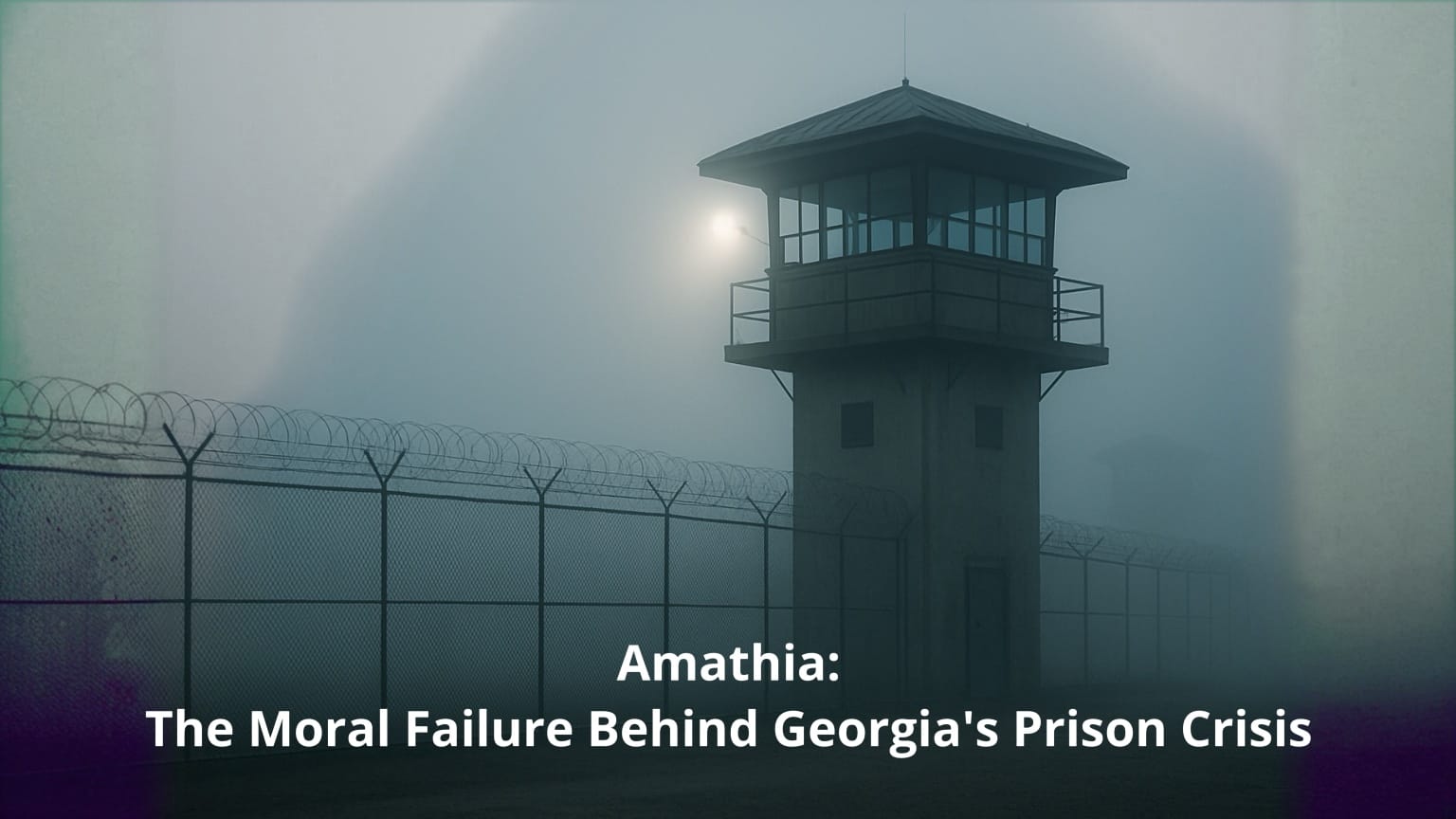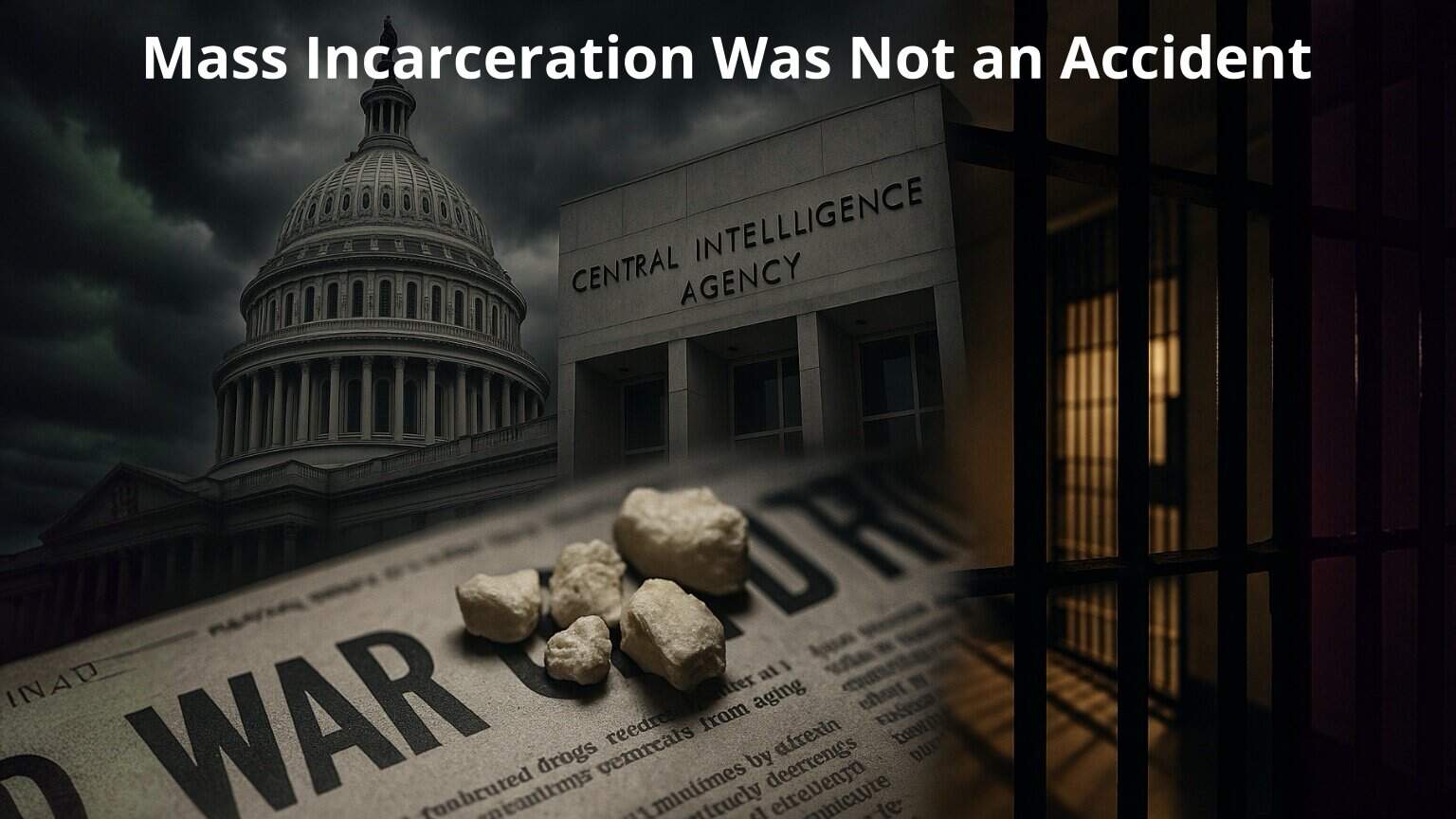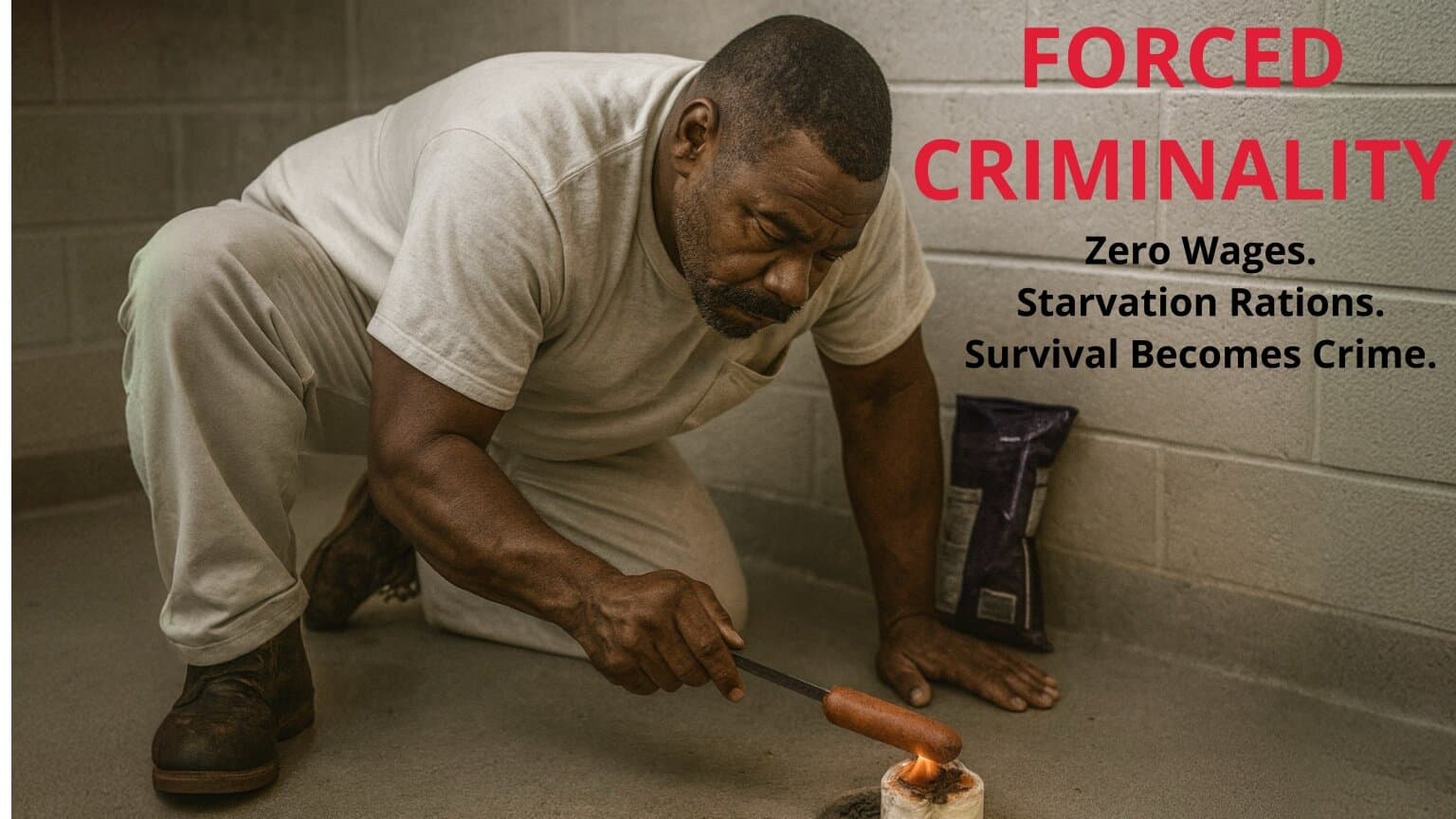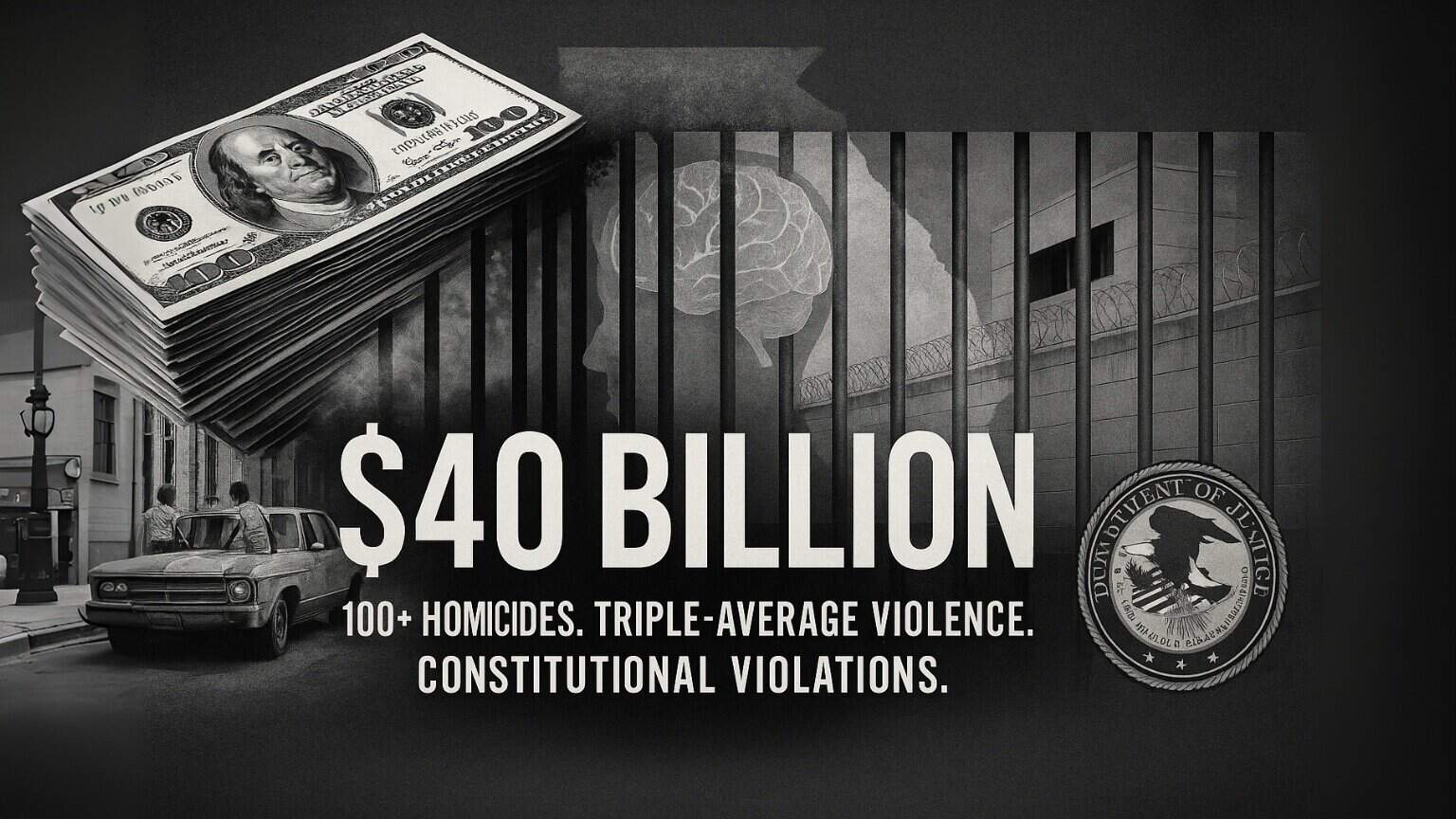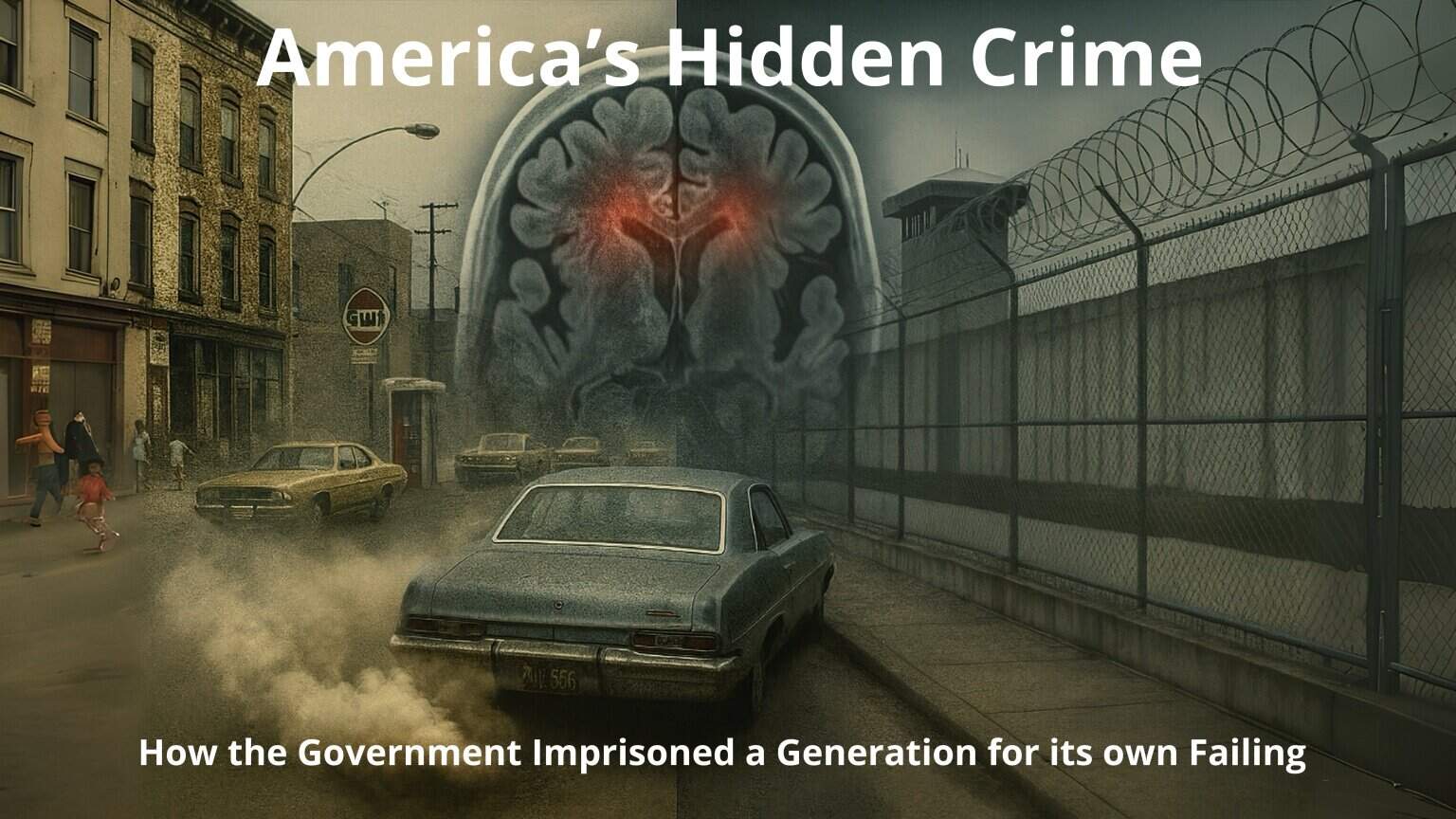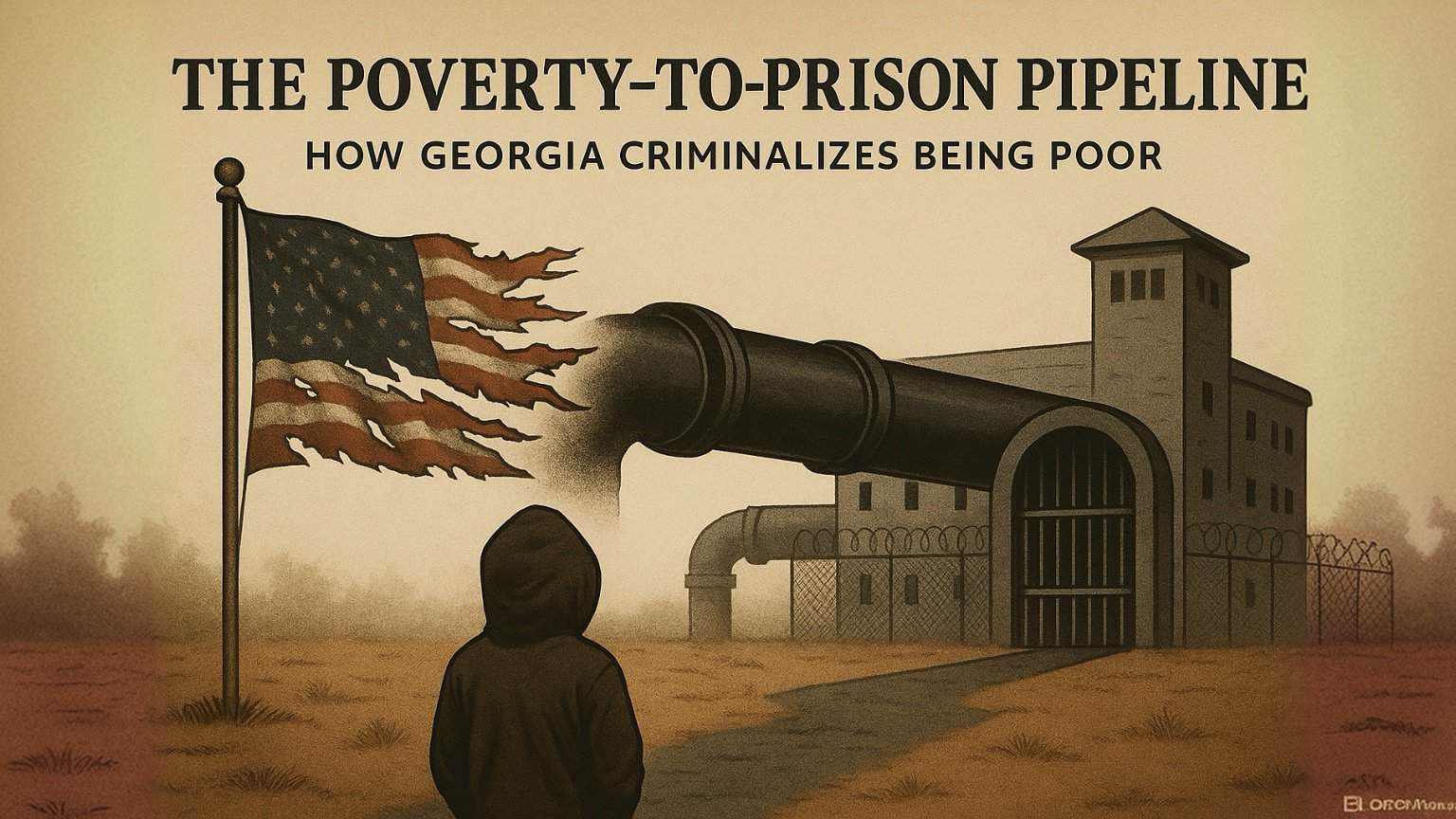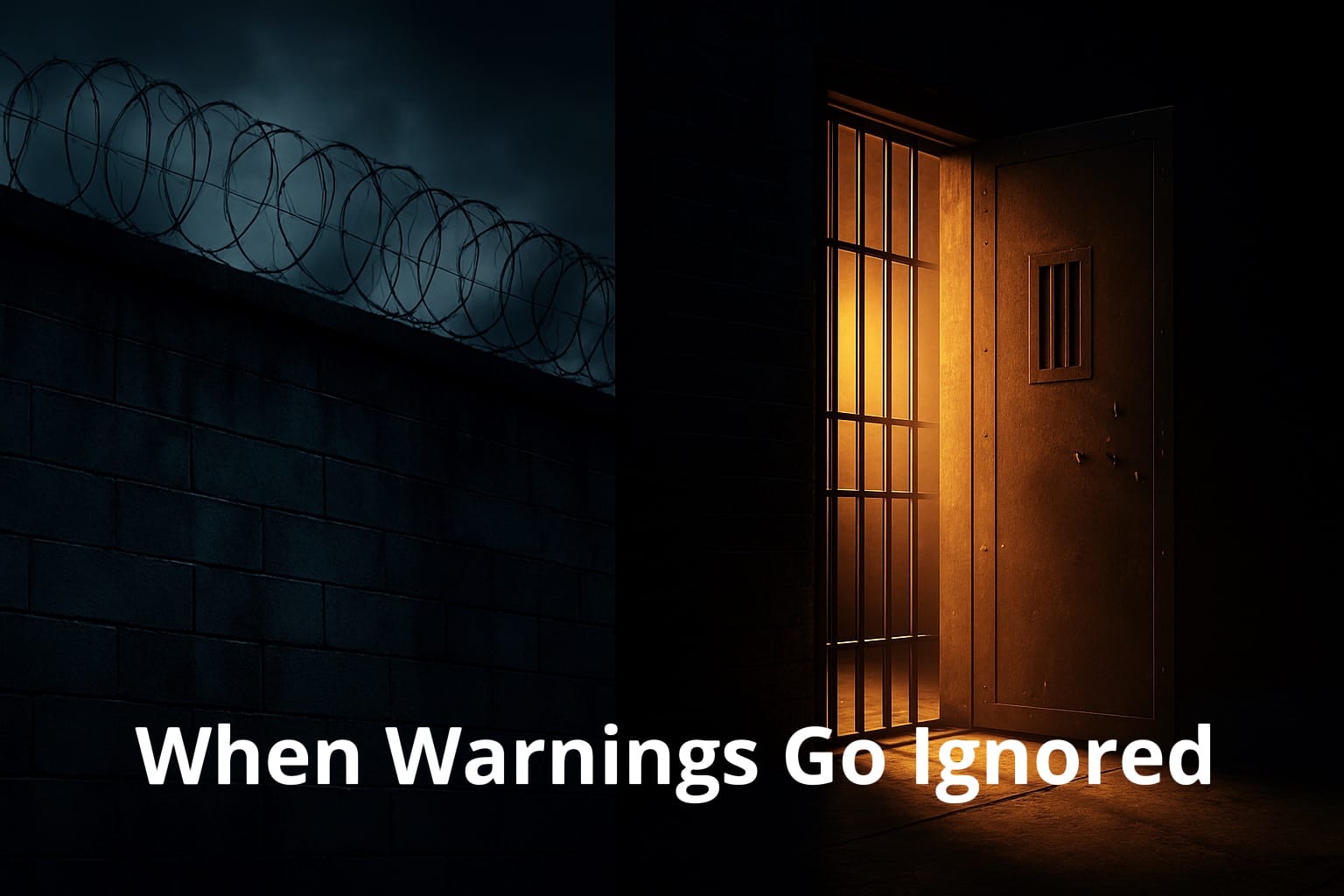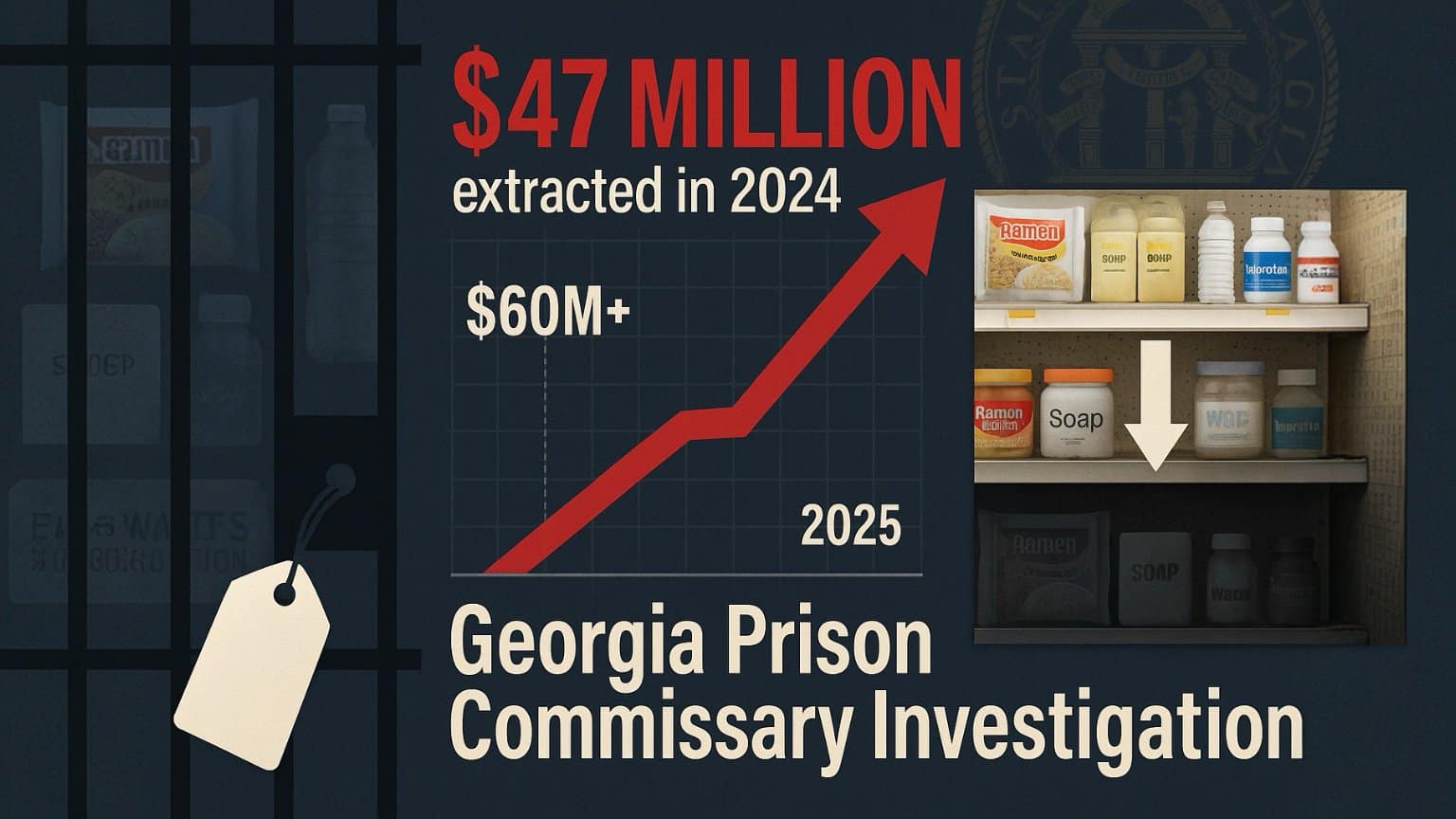Leo Alexander
Forced Criminality: Inside Georgia’s Prison Violence Factory
The DOJ documented 142 homicides in Georgia prisons from 2018-2023. GPS documented 100 homicides in 2024 alone—nearly triple the previous year.
This isn’t random violence. It’s the inevitable result of deliberate GDC policy:
→ Zero wages for prisoner labor
→ 1,200 calories/day (half what’s needed)
→ Ramen marked up 350% to $0.90
→ Ibuprofen marked up 1,076% to $4.00
The equation is impossible: You cannot earn money. The food provided cannot sustain life. The prices are unaffordable.
What would you do?
Kitchen workers steal food to survive. Prisoners make alcohol for $150/bottle. Gangs charge $0.90 for shower access. Underground “medics” treat stab wounds to hide violence from guards.
And GDC policy criminalizes ALL of it – even trading soup for clean laundry.
This is forced criminality: survival strategies the state makes mandatory, then punishes.
Read how Georgia’s zero-wage policy creates the violence it claims to address.
Georgia’s $40 Billion Mistake: How Bad Science and Federal Bribes Created a Constitutional Crisis
Georgia spent $40 billion on Truth in Sentencing laws that academic research proves make prisons deadlier and increase crime. The policies—rooted in the discredited “superpredator” myth and response to lead poisoning the government allowed for 70 years—created what the DOJ calls “among the most severe constitutional violations” nationwide. One hundred homicides occurred in Georgia prisons in 2024 alone. California and Mississippi reformed similar laws and achieved better safety outcomes at lower cost. The evidence for reform is overwhelming. The question is whether Georgia will act.
America’s Hidden Crime: How the Government Poisoned a Generation, Then Imprisoned Them for It
INVESTIGATIVE REPORT
They called them “superpredators.” Remorseless. Without conscience. Politicians predicted 30,000 new teenage killers by 2000 and passed laws imprisoning millions.
They were catastrophically wrong. Crime collapsed instead.
But there’s a darker truth: The “crime epidemic” was caused by something the government knowingly allowed for 70 years—lead poisoning from gasoline.
Between 1923-1996, 8 million tons of lead were pumped into the environment, systematically poisoning children’s developing brains. By 1980, 88% of American children had neurotoxic lead levels.
Twenty years later, those brain-damaged children became the “crime wave.”
Instead of addressing the environmental poisoning, the government:
• Blamed “moral poverty”
• Imprisoned 2.2 million people
• Spent $40+ billion on corrections
• Targeted Black communities disproportionately affected by lead exposure
Our investigation reveals:
✓ 9 countries show identical lead-crime patterns
✓ Brain scans prove lead causes exact damage linked to violent behavior
✓ Academic studies show “tough on crime” policies made things WORSE
✓ Crime declined because we stopped poisoning kids—not because of mass incarceration
This is the story of America’s greatest environmental crime—and the catastrophic misdiagnosis that followed.
Read the full investigation
The Classification Crisis: How Four Medium Security Prisons are Killing People
Georgia has secretly packed four medium security prisons with close security inmates at rates up to 10 times higher than other facilities—creating a deadly mismatch that’s killing people. GPS obtained data showing Dooly, Wilcox, Calhoun, and Washington State Prisons now house 28-30% close security populations. The result? Homicide rates 4-5 times higher than properly classified prisons, with 33 deaths in 2024 alone—over half under age 50. The DOJ found all four facilities in violation of the Eighth Amendment. GDC’s response? Stop reporting causes of death. On November 7, 58-year-old Darrow Brown was stabbed to death at Dooly after accidentally bumping into a gang member. He was under officer escort during restricted movement. It didn’t matter. When you operate medium security prisons as close security facilities without proper safeguards, violence becomes inevitable. And GDC knows it.
When Warnings Go Ignored: How Georgia’s Prison Deaths Became Predictable—and Preventable
GEORGIA’S PRISON DEATHS AREN’T ACCIDENTS—THEY’RE POLICY CHOICES
By September 2025, Georgia’s prisons had already outpaced last year’s homicide total. The DOJ called it “deliberate indifference.” We call it what it is: preventable.
Georgia pours $1.6 billion into new walls while people inside starve. California spent $239 million on rehabilitation last year with a single death. Georgia spent seven times more on concrete and recorded 333 deaths—over 100 homicides.
The fix is simple and cheap:
✓ Single-cell segregation (no more murders in “the hole”)
✓ Separate gangs from civilians (like California does)
✓ Feed people adequate nutrition
✓ Expand education & work programs
✓ Restore parole for low-risk prisoners
The solutions exist. The evidence is overwhelming. What’s missing is the courage to choose lives over walls.
Georgia’s Prison Commissary Extortion: Convenience Store Rejects Sold at Premium Prices for $47 Million
Stewart Distribution supplies convenience stores across Georgia with chips, honey buns, and ramen. When products approach expiration, stores pull them from shelves. Where do those products go?
Back to Stewart’s warehouse in Blackshear—then straight to Georgia’s prisons at premium prices.
The result: Inmates pay $0.90 for ramen worth $0.20 wholesale, $4 for ibuprofen that costs $0.40 at Walmart, $5.60 for peanut butter worth $2.18. Prison families—already missing a wage earner—paid $47 million in 2024 for products worth $28 million, with the state pocketing $18.7 million in pure profit.
Then on November 1, 2025, Georgia raised prices another 30%.
Georgia doesn’t pay inmates a single cent for their labor, then charges them 300-1,000% markups on necessities. Commissioner Tyrone Oliver could reduce these prices today through administrative action. He chooses not to.

